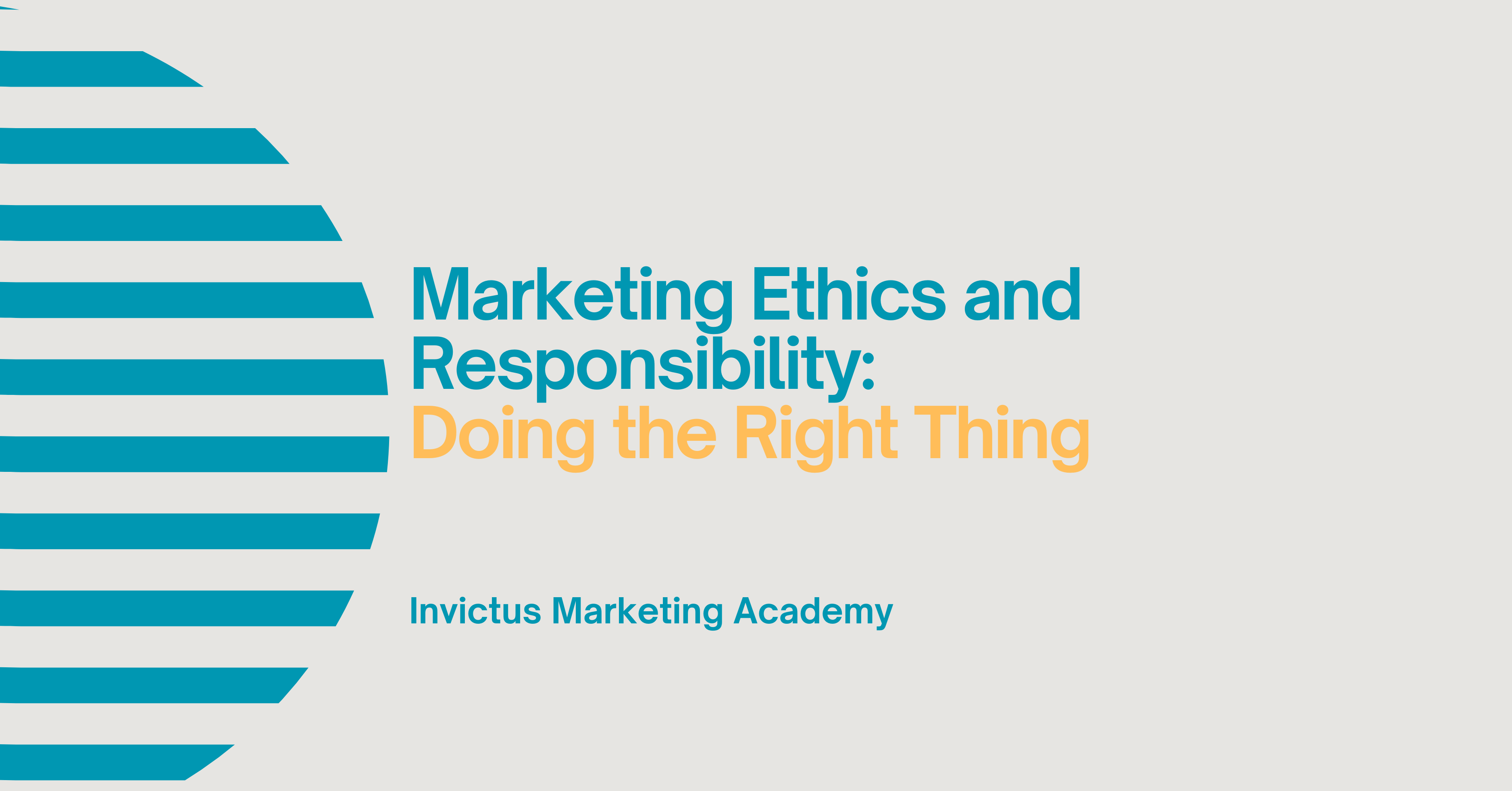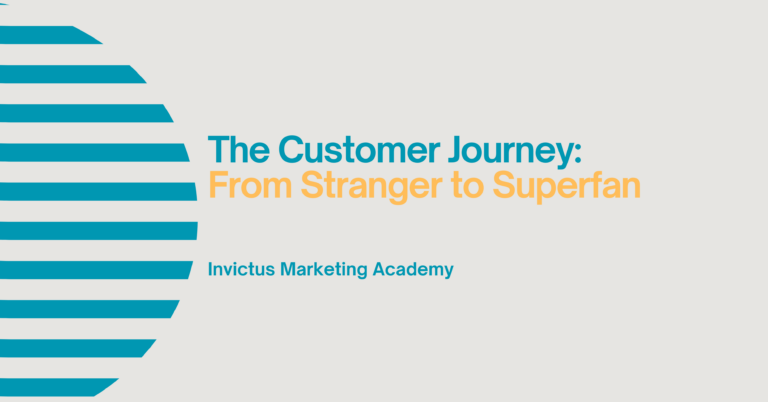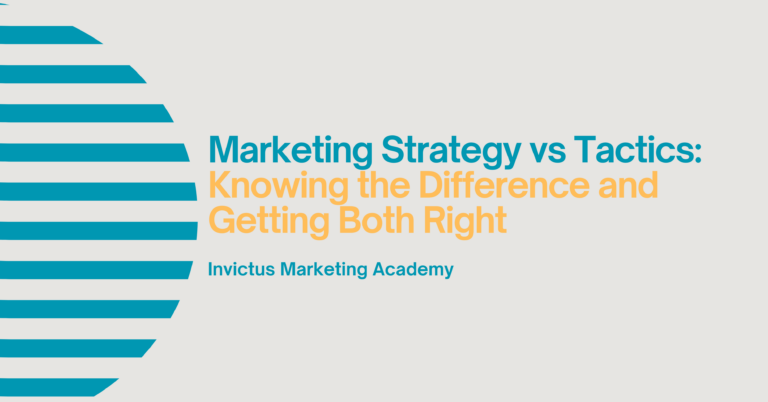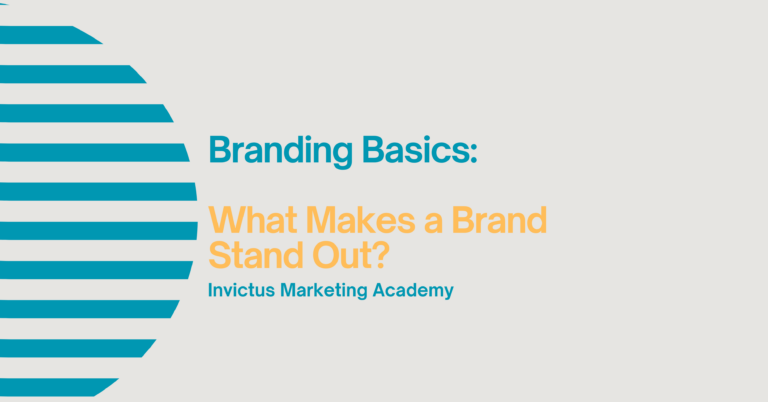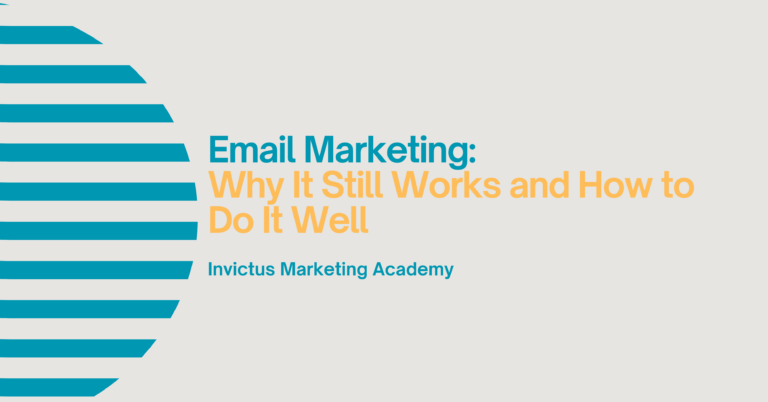Marketing Ethics and Responsibility: Doing the Right Thing
Marketing is often seen as a force of persuasion — designed to attract attention, influence behaviour, and ultimately drive sales. But in a world increasingly defined by transparency, sustainability, and social accountability, how you market matters just as much as what you market.
Modern consumers are not just looking for quality or price — they’re looking for values. They want to buy from brands that treat people fairly, communicate honestly, and take their wider impact seriously. That’s where marketing ethics comes in.
Ethical marketing is no longer a ‘nice to have’. It’s a core expectation. Customers are asking tough questions about how businesses behave — not just behind the scenes, but at every stage of the customer journey. And with social media accelerating how fast reputations rise and fall, there’s less room for error — and more need for integrity.
This article explores what ethical marketing means in practice, why it’s essential for long-term brand health, and how to embed responsibility into every part of your marketing strategy.
What Do We Mean by Marketing Ethics?
Marketing ethics refers to the set of moral principles that govern how a business communicates, promotes, and engages with its audience. It’s about doing what’s right — not just what’s legal, popular, or profitable.
That might sound abstract, but in practice, it involves very real, tangible decisions. It’s about:
- How you represent your products and people
- How you collect and use data
- How inclusive your messaging is
- How honest your offers are
- How responsible your brand is in the wider world
Ethical marketing is a mindset. It says: “We won’t cut corners. We won’t exploit. We won’t manipulate. We’ll succeed by building trust — not by bending the truth.”
Why Marketing Responsibility Matters
In practical terms, ethical marketing is about brand health, customer trust, and future-proofing your business. The brands that lead with values tend to be the ones that survive — not just in terms of sales, but in reputation, loyalty, and resilience.
1. Trust Is Currency
In a world where people can instantly Google reviews, share screenshots, or expose shady practices online, trust has become a business currency. Lose it, and you lose customers. Earn it, and you build loyalty that outlasts trends, price wars, and even economic shifts.
Brands like Patagonia, Innocent, and The Body Shop have built entire followings not just around what they sell, but how they sell it. Their ethical stance has become part of their identity — and their marketing reflects that with consistency and clarity.
2. Accountability Is Public
When marketing crosses a line — whether it’s insensitive, misleading, or tone-deaf — the backlash is swift and visible. Ethical lapses don’t stay behind closed doors anymore. Customers will hold brands accountable, often publicly, and with lasting impact.
Proactive responsibility helps prevent this. It encourages brands to check their blind spots, question their assumptions, and lead with empathy before anything else.
3. Customers Want More Than Products
Today’s customers aren’t just passive buyers — they’re active participants. They research, compare, question, and share. They expect brands to take stances on social, environmental, or cultural issues — and they notice when you fall short.
Ethical marketing isn’t about jumping on every issue. It’s about showing that your values are genuine and consistent — not opportunistic. It’s about being clear about who you are, and standing by that even when it’s not the easy route.
Common Ethical Considerations in Marketing
Ethics shows up in the day-to-day decisions you make — from your advertising copy to your campaign targeting. Let’s look at a few key areas where it matters most.
1. Honesty in Advertising
Truthfulness is the bedrock of ethical marketing. Exaggerated claims, false comparisons, or “too-good-to-be-true” offers may win quick attention, but they damage credibility in the long run.
This includes:
- Accurately representing what a product or service can deliver
- Avoiding deceptive imagery (e.g., retouched before-and-after photos)
- Disclosing paid partnerships or sponsorships
- Honouring offers and terms as advertised
In the UK, all advertising must comply with ASA (Advertising Standards Authority) guidelines. But ethics go beyond compliance. It’s about setting the tone for a brand people can trust.
2. Data Responsibility and Consent
Data has become one of marketing’s most powerful tools — but it’s also one of the most sensitive.
Ethical data practice means:
- Collecting only what you need
- Getting clear, informed consent
- Being transparent about how data is stored, shared, and used
- Making it easy for people to opt out or update their preferences
This isn’t just about ticking GDPR boxes. It’s about showing customers that their privacy is respected — not commodified. Data should serve the customer, not exploit them.
3. Inclusivity and Representation
Marketing plays a huge role in shaping perceptions. The images, voices, and stories you share can either reinforce stereotypes — or challenge them.
Ethical marketing asks:
- Are we representing a diverse range of people authentically?
- Are we using inclusive language and imagery?
- Are we avoiding tokenism or cultural appropriation?
- Have we considered how our message might land across different experiences?
Diversity and inclusion aren’t just about optics — they’re about equity and respect. Ethical brands reflect the richness of their audiences and acknowledge the responsibility they hold in shaping public narratives.
4. Sustainability and Environmental Honesty
As consumers grow more climate-conscious, sustainability claims have become common — but not all are backed up.
Greenwashing — exaggerating or fabricating environmental credentials — is a growing concern. Ethical marketing requires:
- Specificity (e.g. “Made from 85% recycled materials” not just “eco-friendly”)
- Transparency about supply chains and practices
- Avoiding vague buzzwords with no substantiation
Customers don’t expect perfection. But they do expect honesty. Be clear about where you’re making progress — and where you still have work to do.
5. Fairness in Targeting and Messaging
Digital marketing makes it possible to segment and target with incredible precision — but with great power comes great responsibility.
Unethical practices include:
- Exploiting fear, guilt, or insecurity
- Pressuring people into rushed decisions with false scarcity
- Targeting vulnerable groups with high-risk offers (e.g., gambling, high-interest loans)
- Withholding important information
Instead, ethical marketing aims to empower people. It educates, it invites, it earns interest — not forces it.
Embedding Ethics Into Your Strategy
Ethical marketing isn’t just about avoiding bad choices — it’s about designing for good ones. That means building ethics into the heart of your brand and operations, not tacking them on later.
Practical ways to embed responsibility:
- Create ethical marketing guidelines – Document what your brand does and doesn’t support in tone, targeting, representation, and claims.
- Use ethical design principles – Make opt-outs easy, use clear language, and avoid manipulation in your UX and copy.
- Question assumptions – Who benefits from this campaign? Who might be excluded? Whose perspective haven’t we considered?
- Build diversity into your team – A wider range of perspectives reduces blind spots and enriches ideas.
- Be open to feedback – Invite criticism, listen with humility, and adapt. Owning mistakes is part of ethical leadership.
Responsibility is not a destination — it’s a practice. And it must evolve as your business and audience do.
A Practical Example: A Small Clothing Brand
Let’s say you run a slow-fashion clothing brand. You design and sell limited-edition pieces made from reclaimed fabrics, and you’ve built a loyal following around sustainability and mindful consumption.
Here’s how ethics could guide your marketing:
- You’re transparent about where your materials come from, who makes your clothes, and why your prices reflect fair pay.
- You use diverse models in your shoots — not as a token gesture, but because you’ve worked with real customers and collaborators who reflect your audience.
- You avoid manipulative sales tactics, like countdown timers that reset automatically or “last chance” offers that run for weeks.
- You encourage slower consumption — offering guidance on how to repair, restyle, or extend the life of your garments rather than pushing for constant new purchases.
This approach builds more than a customer base. It builds a community — one that aligns with your values and stays loyal because of them.
In Summary
Ethical marketing isn’t just about staying out of trouble — it’s about standing for something. It creates deeper trust, clearer messaging, stronger relationships, and a brand that’s fit for the future.
In a noisy, fast-moving world, ethics become your compass. They guide your voice, your strategy, and your choices — even when the pressure’s on. They show your audience that you care not just about their money, but about their experience, their dignity, and their values.
And when you lead with integrity, you don’t just market products — you market principles. That’s what builds brands that last.

